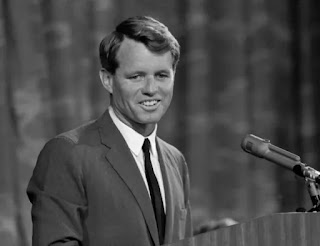CHRIST IN WINTER:
Reflections on Faith & Life for the Years of Winter—UNMASKING THE HOME EC THEOLOGIAN [11-27-24]
Tomorrow is Thanksgiving. Helen
will cook a special meal, as she has for 66 years. I shall be thankful for the
meal, yes, but primarily for her presence. So, I share this story, because it
gives me a chance to give thanks for the real theologian in our family.
I have long wanted to
write a novel about a theological detective, solving crimes not just while
being clergy, like Harry Kemmelman’s rabbi books, or G.K. Chesterton’s Father
Brown, but solving them by applying theology stuff, not detective stuff, to the
mystery. I even started a couple of times, but always got derailed by real
life. So I have written the following as a short story. It’s first-person, but
not a memoir. [Warning: it’s long, 1000 words instead of my usual 500.]
I
put the last book back onto the top of the stack. Almost two feet high. 13
books. All started. Some half-finished. And not a single one that I’m willing
to continue.
I reach for the remote before I realize the TV is out. My
wife tried to reprogram it so it would “work right.” Now it doesn’t work at
all. So she’s in the kitchen revving up some supper. I have until tomorrow,
when the doctor will tell me I’m dying. I have until tomorrow to learn who can
restore Christian unity.
I’m not a super-hero, didn’t get bitten by a church mouse
to give me special theological powers, although I have encountered a few church
rats in my secret forays. I’m just an average theological detective. I’m hired
to infiltrate into supralapsarian congregations to find out if any of their
members are secretly infralapsarians. That sort of thing.
But
I’m secret, not like the big gun theological detectives, who advertise on TV,
like “Brother Hammer, The Devil Dasher.” If anyone finds out about Sister Mary
Justice and me, the game is over.
No,
nothing like that. Sister Mary Justice and I aren’t romantically entangled.
Sister Mary Justice isn’t even her real name, just what she goes by in the
nether world of theological chicanery that we inhabit. She needed a Protestant
to do some nailing on the door of the bishop while she slipped in the back way,
and she’d heard of me through the grapevine, the one they squeeze to get the
juice for communion. Or Eucharist, as she prefers to call it, acting like she
doesn’t even know Protestant words.
My
cover in the world is as an expert witness in heresy trials. I’m the world’s
leading expert on patripassionism. The problem is, there are no heretics
anymore. Anything goes. Otherwise, you’re being “judgy.” Especially patripassionism.
Everybody believes that God suffers, and if you look at what we’ve done to God’s
world, there is good reason to believe that.
On
the dark theological web, though, as a free-lance theologian detective, I am
known as the Protestant expert on Catholic theology, or The Methodist Jesuit.
Nobody knows that the cross around my neck hides a millstone placed there by my
mentor and hero, The Rev. Franco Fudge, Doctor of Divinity, the President of
The St. Fiacre University School of Theology. It was he who first realized my
talent for duplicity, and my fondness for disguises. [1]
It
was the All-Saints party. I was dressed as Huldrich Zwingli, because all the
Martin Luther and John Calvin costumes had already been rented out. I was
swaggering around, trying to act like a Predestinarian, when Dr. Fudge wiped
his mouth and said, very quietly, “You’ll never pull that off. Everyone can
tell you’re an Arminian.”
“What
can I do?” I gasped, forgetting for the moment, because of his august presence,
although it was November, that being an Arminian, I have free will and so can
do anything I want.
“Come
with me,” he whispered. “History will judge me harshly for this, but I’m going
to introduce you to Sister Mary Justice. She’s the one dressed like Martha
Stewart.”
“Martha
Stewart? At a theology Halloween Party?”
“All
Saints, not Halloween. She is trying to infiltrate a new underground movement
known as Home Ec Theology. They eschew traditional Aquinian systematic theology
categories in favor of recipes that ostensibly produce potluck casseroles but
are actually instances of hypostatic union.”
“The
two natures of Christ?” I gasped. “But…”
“Yes,”
whispered Dr. Fudge, “it may be their devious ploy to unite the two so long
divided, Unitarians and Trinitarians, since it is anathema to both alike. Can
you imagine a world where Unitarians are taken seriously? I shudder even to
think about it.”
“But
isn’t anathema reserved for gays alone?”
“No,
that’s abomination.”
Now
Sister Mary Justice and I were tasked with learning the true identity of the
Home Ec Theologian, the one person who could single-handedly reverse the
Christian divide that had lasted a thousand years, The Great Schism of 1054.
I whispered the password, “Filioque.” She
passed it back, doing a remarkable imitation of an Italian vesper sparrow:
“Feelly-oh-ohkay. Feely-oh-ohkay.”
“Remember
the words of Mother Teresa,” she said. “Go home and love your family.”
She
pulled a censer from out her robe, waved it in the still air of the ecclesial alley,
and disappeared in a cloud of holy smoke.
I
did as she said. I went home. I looked at my wife, fixing supper in the
kitchen, the way she snuck a lettuce leaf under the Jello until it was almost
hidden from all but the eye of unanimous discernment, the way she cleaves a
loaf of home-made bread neatly into two parts…
Of
course, the two natures of Christ, hypostatic union. I suddenly knew her secret
identity. The Notorious HET. The Home Ec Theologian.
John Robert McFarland
1] St. Fiacre is the
patron saint of hemorrhoids sufferers.






















